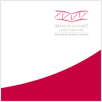On September 15 and 16, 2022, the workshop „PREGOV III (PREdictive GOVernance) – Towards Transdisciplinary Perspectives on Algorithmic Prediction & Decision-Making” is taking place for the third time as part of an international workshop series focusing on predictive governance. The main topics addressed at this year’s workshop are:
1.) Organizational-theoretical perspectives on the topic of predictive governance,
2.) different types of use of algorithmic prediction and decision-making in organizations and,
3.) possibilities, limits, and challenges of specific research methods.
The three panels during the workshop will focus on organizations from the public sector (panel 1), the cooperate sector (panel 2) and the educational sector (panel 3).
The workshop will take place at Pop-up-Horst Hamburg (Winterhuder Weg 112, 22085 Hamburg). Registration is still possible. Please contact Dr. Manuel Reinhard (member of the organizational committee) via email: [email protected]
Abstract Workshop
The datafication of the future has significant consequences for contemporary and upcoming policies in different sectors of society as well as for their analysis. The latter implies the need for theoretical reflection and methodological innovations, especially for new types of data that
become accessible to empirical research. This development should be understood as both a challenge and an opportunity for further analytical developments. How does the datafication of the future change future policies – collective practices of imagining, planning, and controlling
future(s) – in different sectors of a society? What influence does it have on the rationalities and normativities in specific organizations? What demands do research methods have to meet in order to be able to answer these questions?
Against this backdrop, this year’s PREGOV-workshop focuses on organizational and methodological questions in practices of predictive governance. Building on our previous meetings, our aim is to explore what insights organizational-theoretical perspectives promise, what
uses of algorithmic prediction need to be distinguished in different organizational settings, and which research methods allow us to learn about them.
The workshop will bring together established and young scholars from Germany and abroad from diverse fields such as philosophy, sociology, and economics, organization and educational science to find preliminary answers to these questions. Thematically, we will focus on the following topics: (1) Organizational-theoretical perspectives on the topic of predictive governance, (2) different types of use of algorithmic prediction and decision-making in organizations and, hence, (3) possibilities, limits, and challenges of specific research methods. Our aim is to foster a discussion on fundamental organizational-theoretical, methodological, and empirical questions of research on predictive governance in the different fields of public administration, education and business, thereby creating transdisciplinary learning opportunities for the future research of all workshop participants.
